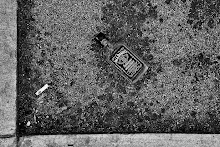Combating insomnia through nutrition is about eating the right combination of foods in the evening, and - perhaps even more importantly - knowing what foods to avoid.
What not to eat/drink before bed:
- Caffeine - It should be obvious, but you should avoid caffeinated drinks and foods - coffee, tea, many soft drinks, and chocolate - several hours before bed. Caffeine is a natural chemical that activates the central nervous system, which means that it revs up nerves and thought processes. For people who are sensitive to caffeine, that excitation is not pleasant, making them feel jittery and slightly ill. If you drink caffeinated drinks too close to bedtime, chances are it will keep you awake. Of course, what "too close" means is totally individual. Sensitive people should stop drinking caffeine at least eight hours before bedtime (that means by 3 p.m., if you hit the sack at 11 p.m.). You can play with your particular timing...just don't experiment on a night when you absolutely must get a good night's sleep.
- Alcohol - Although many people use alcohol to help them relax before bed, the effects can wear off, so they wake up in the middle of the night. Over time, alcohol-induced sleep becomes less restful, so sleepiness will become a constant fact of life. I'm not saying you need to give up alcohol, but don't use it like a sleeping pill; and if you have insomnia, I strongly recommend omitting alcohol for a few weeks to see if your sleep problem resolves.
- Large Meals - Eating a huge dinner, or even a large before-bedtime snack, may make you feel drowsy, but the sleep won't necessarily take. When you lie down and try to sleep, your digestion will slow down, make you feel uncomfortable, and possibly keep you awake. I recommend eating a dinner that has no more than 600 calories (and optimally at least three hours before bed).


No comments:
Post a Comment